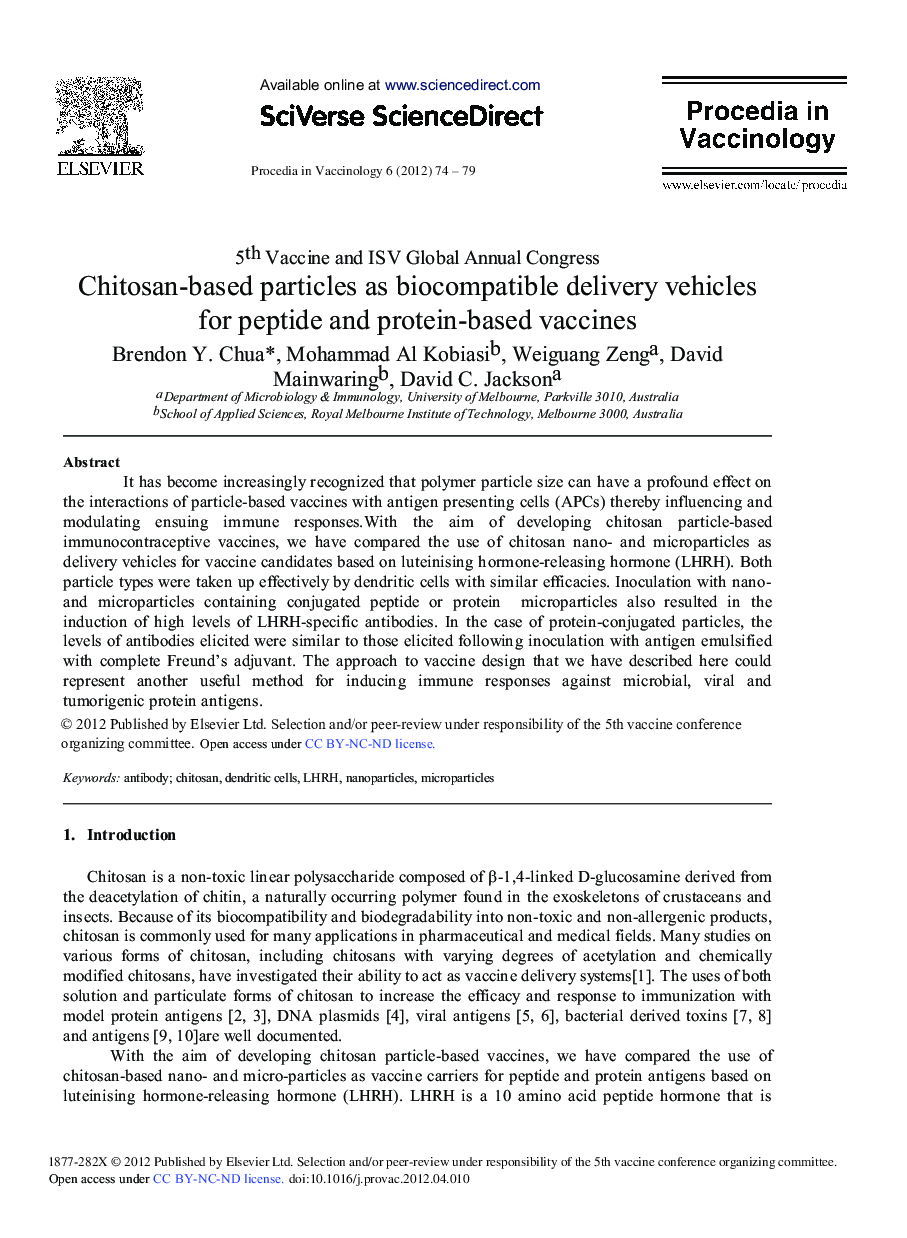| Article ID | Journal | Published Year | Pages | File Type |
|---|---|---|---|---|
| 2473779 | Procedia in Vaccinology | 2012 | 6 Pages |
It has become increasingly recognized that polymer particle size can have a profound effect on the interactions of particle-based vaccines with antigen presenting cells (APCs) thereby influencing and modulating ensuing immune responses.With the aim of developing chitosan particle-based immunocontraceptive vaccines, we have compared the use of chitosan nano- and microparticles as delivery vehicles for vaccine candidates based on luteinising hormone-releasing hormone (LHRH). Both particle types were taken up effectively by dendritic cells with similar efficacies. Inoculation with nanoand microparticles containing conjugated peptide or protein microparticles also resulted in the induction of high levels of LHRH-specific antibodies. In the case of protein-conjugated particles, the levels of antibodies elicited were similar to those elicited following inoculation with antigen emulsified with complete Freund's adjuvant. The approach to vaccine design that we have described here could represent another useful method for inducing immune responses against microbial, viral and tumorigenic protein antigens.
